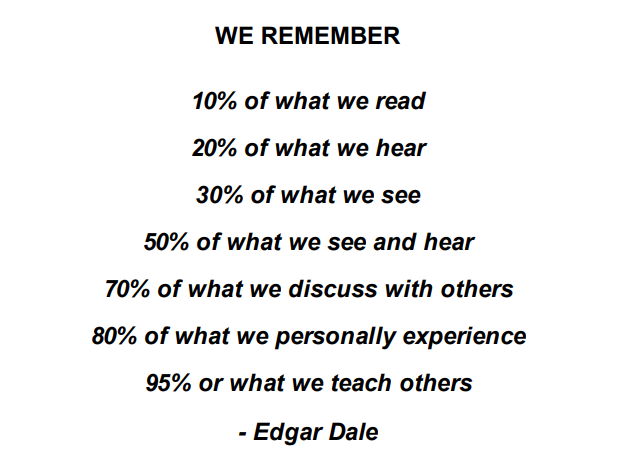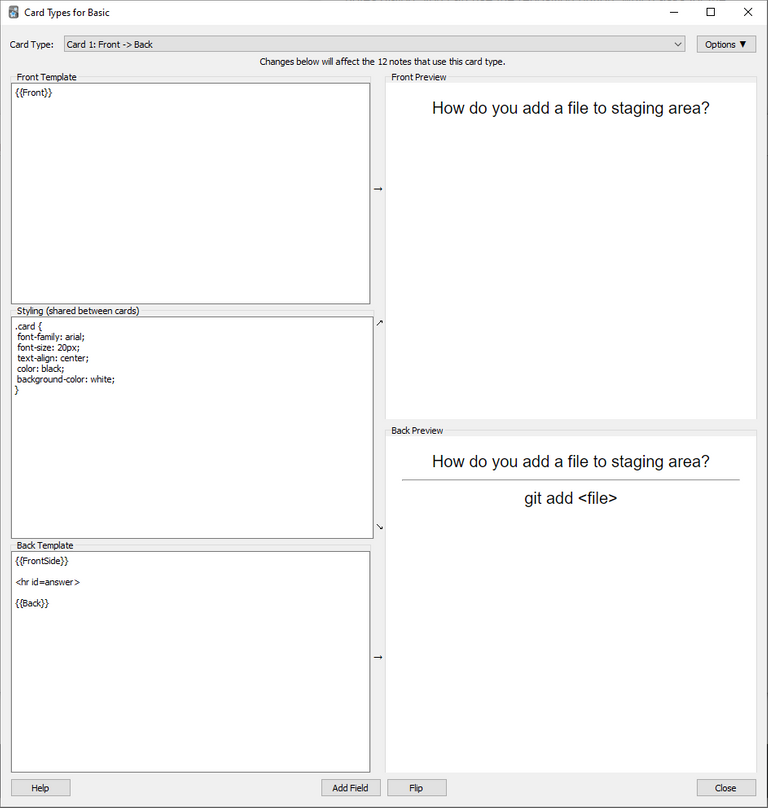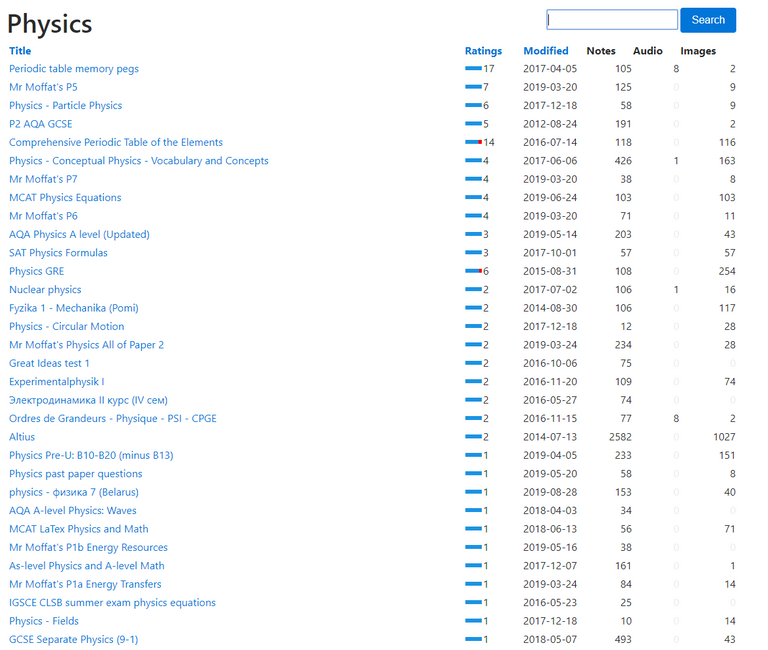Workflow Series
- Introduction to my Workflow Series
- Fundamentals of Effective Time Management
- Open Loops and the 2 Minute Rule
- Remember the Milk
Increase retention and speed up learning
This is the fifth installment of my workflow series. Check out the links above to follow along. I will be posting previous entries at the start of each new entry in the series.
Part of everyone's development is to learn new skills. This is an unavoidable yet time-consuming process. Most people have a relatively low success rate.

While everyone learns differently and has their own study habits, there is one technique that has proven to be extremely effective for all types of learners.
Spaced repetition learning
Spaced repetition is an evidence-based learning technique that is usually performed with flashcards. Newly introduced and more difficult flashcards are shown more frequently while older and less difficult flashcards are shown less frequently in order to exploit the psychological spacing effect. The use of spaced repetition has been shown to increase rate of learning.
Although the principle is useful in many contexts, spaced repetition is commonly applied in contexts in which a learner must acquire many items and retain them indefinitely in memory. It is, therefore, well suited for the problem of vocabulary acquisition in the course of second-language learning. A number of spaced repetition softwares have been developed to aid the learning process. Alternative names for spaced repetition include spaced rehearsal, expanding rehearsal, graduated intervals, repetition spacing, repetition scheduling, spaced retrieval and expanded retrieval.
- Wikipedia
If that didn't make much sense, let me break it down for you. I will first explain the technique, then show you how you can save even more time using free software.
Spaced Repetition is the process of using flashcards to learn new skills and repeating the process on a regular basis until you master a subject. This is done by prioritizing and repeating parts you are unable to answer correctly.
The first process is to create a deck of questions or clues for as much of the subject you can think of. You then set a schedule to regularly quiz yourself a few each session. If you get one wrong, you schedule to review it over your next session. If you get one right, you schedule the review further out.
This creates a process where you are always learning new cards but repeating cards you have difficulty with. Over time you will get over those difficulties and those cards will be reviewed less often.
Using real flashcards this becomes a very tedious process. There is software that will automate this entire process. You can also find premade cards for many popular topics from programming, science, and even foreign languages. There is a good chance you won't even need to make your own flashcards.
Introducing Anki
Anki is one of the more popular software solutions for Spaced Repetition Learning. Anki is free for PC & Web and has a paid solution for mobile.

Source
After reviewing the answer for a card, you then decide how easy the card was. The harder the card was, the sooner you will revisit that card. Anki will also allow you to decide how many cards you will review per session and keep track of your progress with statistics.

Anki will intelligently schedule which new cards to show you and which cards to review based on how you rate your comfort level of each answer and how frequently you study.
While the download version of Anki is better than the web version, I recommend trying the web version with a shared deck to get familiar with the process. You won't be able to track statistics, but it is really easy to get up and running quickly.
The desktop software can sync your decks with the web and mobile versions so you can work from anywhere.
Ultimately I highly recommend the download version as it is free and has a lot more features.
These are not your standard flashcards
One of the great things about Anki is your flashcards don't have to be just text. Cards can include text, pictures, audio, syntax highlighting, mathematical formulas, and even CSS styling.

There is almost no limit to what you create for flashcards.
Where to download premade decks
You can download decks on almost every topic by going to:
https://ankiweb.net/shared/decks/

Once you add a deck to your account, they will remain there on any device you use as long as you sync.
Want to learn Git?
There is a premade deck for that!
Want to study US presidents?
There is a premade deck for that!
Need to study Amino Acids?
You bet there is a deck already made.
Have kids? You can have them make their own cards for subjects they have difficulty with and dramatically increase their performance.

Love the work flow series in general. Keep it up! As for Anki, I installed it a few months ago, but never used it because I didn't know about the premade decks. Now I will get tons of use out of the thing. Thanks!
As an aside, it would be cool if deterministic crypto wallets integrated this kind of thing to help memorize 12/24 word mnemonics. There is, of course, a security trade off, but it might be worthwhile.
Posted using Partiko Android
!COFFEEA
!shop
$trdo
!BEER
for you
你好鸭,evronm!
@eii给您叫了一份外卖!
花生阿姨牌花生
吃饱了吗?跟我猜拳吧! 石头,剪刀,布~由 @ericet 村长 迎着大雪 跑着步 给您送来
如果您对我的服务满意,请不要吝啬您的点赞~
@onepagex
I actually used real flashcards back in college.
They helped with o-chem and a lot of the clinical chemistry interpretations.
But dude, you can include audio an images in this thing? That's pretty amazing. Especially for those studying things like sonography, etc.
We need this to learn Steem stuff. 😂😂
Posted using Partiko Android
I wish I was knowledgeable about STEEM, I would've made flashcards for it. (also, things on STEEM changes with time, like hardforks so it'll be hard to make fit for all flashcards.)
Heard many praise for Anki and even downloaded it to my PC to learn Japanese (Kanji,) though I didn't make a habit of it so I forgot it with time. Time to fix that, thanks for reminding me.
Is that image about the percentage of what we remember accurate?
Yes. Roughly. It isn’t exact science and in the end is just an observation.
That's funny, you should try putting it out as content, and not spam, eh?
That's interesting to know!
So awesome they have German! Going to give this a try
Posted using Partiko iOS
This is pretty cool and super useful. I haven't heard of Anki before. I will explore more. Thanks for sharing. I already know what I will use it for.
Resteemed - great 'searchable' content.
Posted using Partiko Android